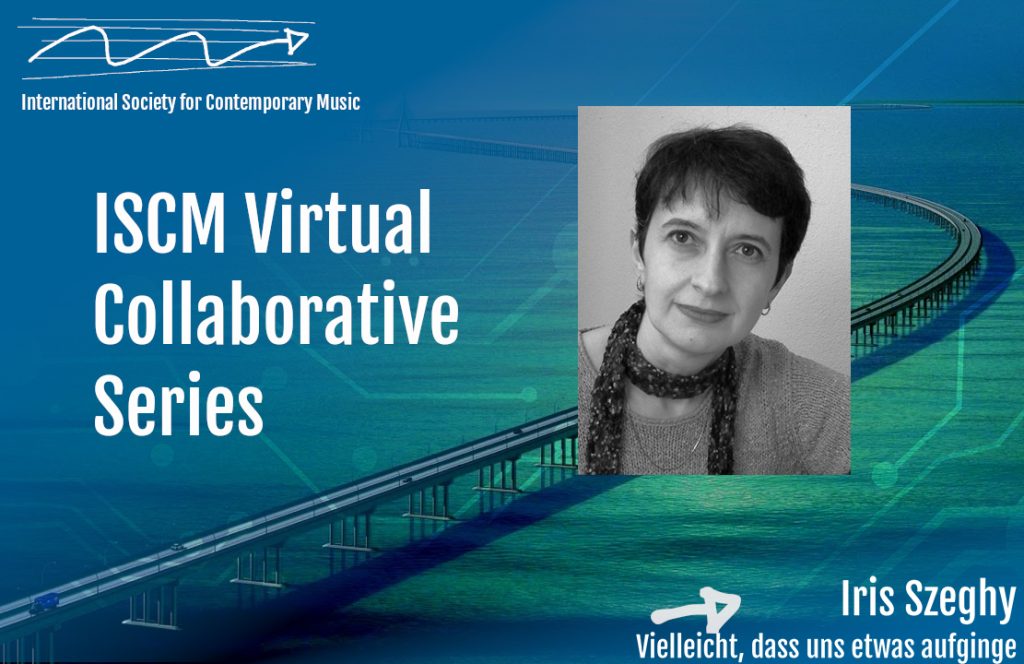Iris Szeghy: Vielleicht, dass uns etwas aufginge

Iris Szeghy (b. 1956) is a Slovak composer of Hungarian ancestry currently based in Switzerland. According to Slovak composer Peter Zagar, who wrote the entry for Szeghy in A Hundred Slovak Composers (Eds. Marián Jurík, Peter Zagar. Bratislava : National Music Centre Slovakia, 1998): “Szeghy’s work hitherto as a whole is remarkable for the quantity of compositional techniques assimilated. Two principal motifs are represented there: the tradition of European music of the last three centuries, and the avantgarde tendencies of the last fifty years, directed against that tradition. Inevitably, tension arises between these interests when they meet. Szeghy, however, does not elevate this inner conflict to the status of a central style-forming element. Her treatment of divergent material does not lead the listener to an awareness of ‘shocking’ contradictions; rather, her entire work is subordinated to a basic procedure: the ‘new’ is integrated into the ‘old’, and vice versa. In this synthetic process she places a distinct emphasis on defamiliarisation of the musical statement. She strives for this on the one hand by direct
confrontation of the established ‘traditional’ texture with the ephemeral sonorousness of
contemporary techniques of note-forming (including electro-acoustic music), while at other times
she chooses immersion in a pre-selected form (e.g. ciaccona), seeking an interpenetration of
objective and subjective elements in the space demarcated by this form. Other important motivating
sources for Szeghy are the values coming from visual art (Hommage à Rodin), literature (Afforismi), and archaic folklore (Midsummer Night’s Mystery).”
About her 2003 composition Vielleicht, dass uns etwas aufginge (Perhaps, we would realize something) for soprano and strings based upon poems of Klaus Merz, Szeghy has written: “In 2002 I was commissioned to write a work by the occasion of the 50th birthday of the Artists House in Boswil in Switzerland – the first performance took place on July 2003 at the Boswil Summer Festival. The piece sets to music poems by the contemporary Swiss poet Klaus Merz. His poetry was an exciting discovery for me: it says much in few words, which is roughly that what I am looking as a composer for, of course, with means of music. The contrast between the economy of means and the density of thoughts behind them is present also in my work – it is also characterized by that quiet urge, by the power of the unsaid. From the numerous poems by Klaus Merz I chose five short, pensive statements on human existence – they deal with hope, everyday life, experience, happiness and death. The piece is built not as a song cycle, but as a
compact whole – as a kind of rondo in which the central function belongs to the poem “Wish”. Its
setting to music returns more times in the work, however, each time it happens in a different way.“
Catriona Bühler, Soprano, Musikkollegium Winterthur conducted by Pierre-Alain Monot
